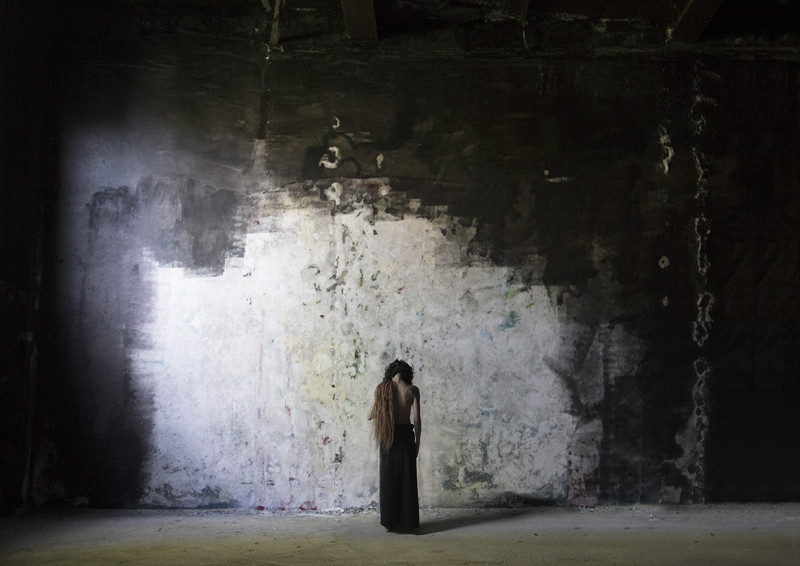القدس Jerusalem
Concepted by Lemi Ponifasio
Directed by: Lemi Ponifasio
Opera House, 22nd Feb 2020
Reviewed by: Madelaine Empson
I’m not going to pretend I know what القدس Jerusalem is about. The words ceremony and ritual come to mind, but I didn’t pick up on one narrative – just one throughline: the terrible cost humanity must pay for its own actions.
Nine performers – Rosie Te Rauawhea Belvie, Tame Iti, Kawiti Waetford, Ery Aryani, Terri Crawford, Anitopapa Kopua, Manarangi Mua, Rangipo Wallace Ihakara, and Helmi Prasetyo – take turns emerging from the back of the cavernous stage, from the pitch black, as if by magic. They cross the stage in slow motion and return to the darkness, sometimes singing, sometimes shrieking, sometimes silent. Always, there is asymmetry. A breathtaking lighting design by Helen Todd frames each action, creating arresting stage pictures at every turn. Ponifasio’s discordant, piercing sound design overwhelms at times, while Waetford’s performance of opera in Te Reo Māori astonishes.
القدس Jerusalem is inspired by the poem Concerto al-Quds by Adonis, excerpts of which are beautifully projected onto the back wall during one scene. Because the writing appears in fragments, this doesn’t help me attribute meaning to the production. Rather, words and phrases detonate in my subconscious. I see blood and rotting fruit in my mind’s eye. This brings me to my next point: القدس Jerusalem is outstanding, but it is not easy to watch.
There is one scene that is particularly horrific, and in this one I see many audience members leaving. A man covers himself in mud and crawls around the stage, his face contorted in grotesque gestus, while a woman films him and screams. Watching this scene drains the last of my emotional resilience. We are then gifted an uplifting waiata performed in five-part harmony. This would be the perfect conclusion, only it’s not – there is another half an hour. I have gone through the wringer and I’m now exhausted not elated, enduring not enjoying, surviving not thriving. I understand that we were never meant to feel comfortable watching القدس Jerusalem, but I do believe there is only so much a person can take.
View more reviews:
« Click here


